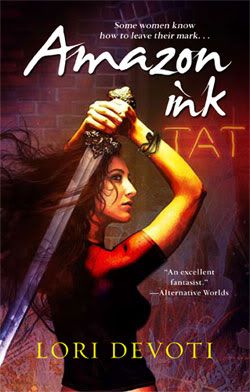Thu 21 Aug 2014
Taking it like a (wo)man
Posted by PJ under art, criticism, critiques, freedom, jealousy, letting go, novels, time, writing
No Comments
I have only ever taken one critique of my writing personally, and that was largely because it was meant personally. The critiquer mostly wanted to put me in my place and take revenge for an honest review I did of her Very Precious Novel. I told her that her writing was lovely, the characters in her book were interesting people I liked hanging out with, but I thought she’d done some chickenshit stuff with the plotting. Although I used, yanno, polite language, phrased things as positively as I could, trying to be supportive.
In turn, she said my novel was such utter dreck that she couldn’t make it past chapter 3 and didn’t want to waste anymore of her Very Precious Time actually finishing. Except, yanno, in semi-polite language. Though not very polite. Rather dismissive, in fact. Really hard not to take that personally.
Her novel went on to be published, mine did not, but mine got some positive response from agents. The ending was too controversial and “anti-market” but send the next novel along, and etc. Life took over and I wasn’t able to do any of that.
I admit to some perverse gratification when my critiquer’s novel was reviewed in Locus. They called her on the selfsame chickenshit plotting I had. Although the reviewer used, yanno, polite language. Though not as polite as mine. And I’d be lying if I said I was anything less than perversely gratified when the novel didn’t sell well.
Mostly, however, I take criticism like a grown woman. I ask people to read and critique my work because I want honest opinions so I can make it better. And I stay away from the perverse gratification as much as possible because I really do believe that negativity breeds negativity. It’s not healthy for me as a person or an artist to nurse grudges. They’re rather like hoarding useless junk. Too much of it in any one life and you wind up being one of those people buried alive and suffocated to death when a pile of old smelly junk falls on top of you.
No, envy and salacious glee at another person’s fail tend to choke the creative process. That needs to be as free-flowing as possible and if the artist encumbers herself with negative emotions she’ll stop moving altogether. I see it even more clearly now that I have so little time to do creative work, so little Me Time. An artist needs to be able to take those precious moments and run with them whenever they occur, wherever they lead.
And that includes being grateful for the time others spend reviewing and giving honest critiques of my work. I’m grateful for 99.9% of the reviews I’ve gotten. As you can probably tell from the opening of this post, I haven’t entirely succeeded on letting go of that one unfair one. I still grit my teeth when I see that person’s name. Fortunately, I don’t see it much anymore unless I masochistically google it. And I hardly ever do that. Hardly.
I don’t have time for that. I don’t have time for hoarding old newspapers of envy, scrap tin of grudge, and empty boxes of perverse gratification. I need to let go, lighten my load, and liberate myself completely from the junk preventing me from moving freely.

